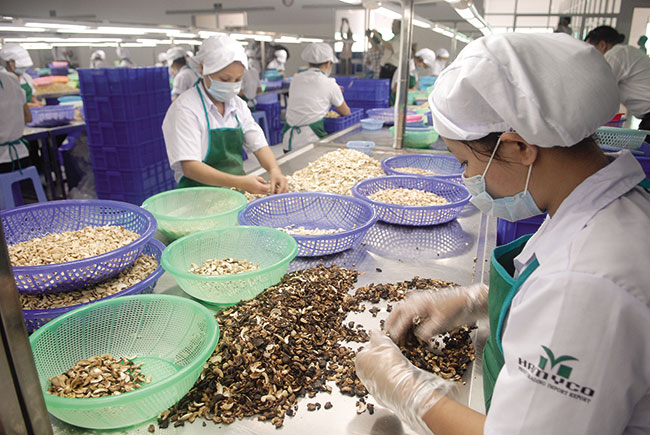Labour benefits raise production cost concerns

Foreign and domestic firms are worried that a new law regarding labour benefits will drive up production costs
Under the law, taking effect on January 1, 2016, there will be a rise in social insurance, and sickness and maternity allowances and benefits for labourers. This regulation is aimed to help labourers have a better life.
However, the regulation has been frowned upon by foreign firms.
Yazuzumi Hirotaka, chief representative of the Japan External Trade Organisation (Jetro) in Ho Chi Minh City, told VIR that together with an increase in regional minimum wages, the change of ratio for the payment of social insurance officially taking effect from January 1, 2016 would make businesses’ operational costs significantly higher. “As a result, investors might hesitate to promote or expand their investment activities in Vietnam.”
Hirotaka added that in May 2015, the Japan Business Association in Vietnam sent its concerns about the issue to the relevant Vietnamese ministries and agencies. However, not much had been done to address these issues since they were first raised.
Echoing Hirotaka’s view, Ryu Hang Ha, chairman of the Korea Chamber of Commerce in Vietnam, further added that the new law would force employers to pay more for “additional items” to wages, which were the basis for the calculation of social insurance payments. This might lead to a dramatic increase in labour costs.
“We see no other country where enterprises must bear huge expenses on social insurance, which are equivalent to 22 per cent of wages payable to employees, as Vietnam does,” Ha said, noting that the new regulation would add significantly to the expenses borne by enterprises and therefore would cause the manufacturing industry to lose some of its appeal.
Not only foreign investors, several local firms have also barracked the new regulation.
Nguyen Xuan Duong, board chairman of Hung Yen Garment JSC, said that labourers would actually be the most affected by the law, as labour-intensive firms would not accept losses or profit cuts. They would instead reduce labourers’ income to retain benefits.
Duong’s company is employing 14,000 workers. According to his estimation, with the old social insurance
payment level, the company lost VND180 billion ($8.25 million) a year. Under the new regulation, the figure would reach VND230 billion ($10.55 million) annually. “We have no choice but decrease labourers’ income,” said Duong.
Still, despite growing concerns among the business community, Tran Thi Thuy Nga, head of the Ministry of Labour, Invalids and Social Affairs’ Social Insurance Department, told VIR that “the law has many positive changes, aiming to increase social responsibility among businesses and bring a better life to workers in the short and long term.”
“We have taken into careful consideration the possible financial burden on businesses when the law comes into effect, and we found that the increased social insurance payment would not affect them greatly,” she added.
What the stars mean:
★ Poor ★ ★ Promising ★★★ Good ★★★★ Very good ★★★★★ Exceptional
Latest News
More News
- Foreign leaders extend congratulations to Party General Secretary To Lam (January 25, 2026 | 10:01)
- 14th National Party Congress wraps up with success (January 25, 2026 | 09:49)
- Congratulations from VFF Central Committee's int’l partners to 14th National Party Congress (January 25, 2026 | 09:46)
- 14th Party Central Committee unanimously elects To Lam as General Secretary (January 23, 2026 | 16:22)
- Worldwide congratulations underscore confidence in Vietnam’s 14th Party Congress (January 23, 2026 | 09:02)
- Political parties, organisations, int’l friends send congratulations to 14th National Party Congress (January 22, 2026 | 09:33)
- Press release on second working day of 14th National Party Congress (January 22, 2026 | 09:19)
- 14th National Party Congress: Japanese media highlight Vietnam’s growth targets (January 21, 2026 | 09:46)
- 14th National Party Congress: Driving force for Vietnam to continue renewal, innovation, breakthroughs (January 21, 2026 | 09:42)
- Vietnam remains spiritual support for progressive forces: Colombian party leader (January 21, 2026 | 08:00)
















 Mobile Version
Mobile Version